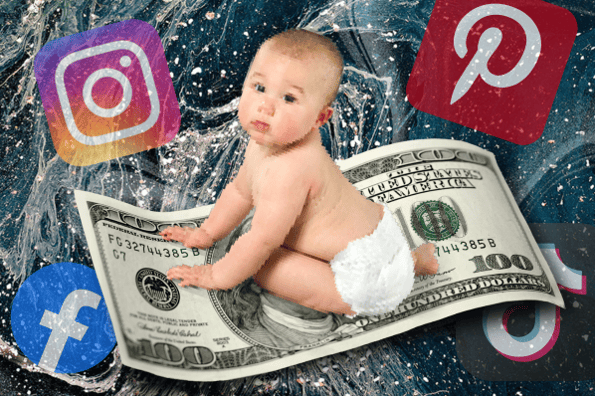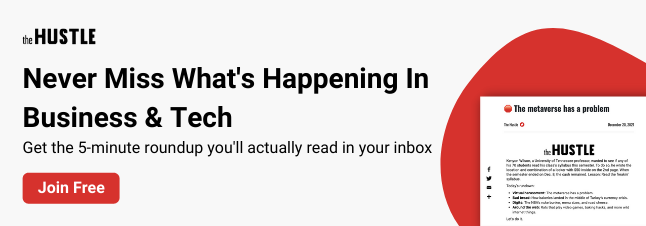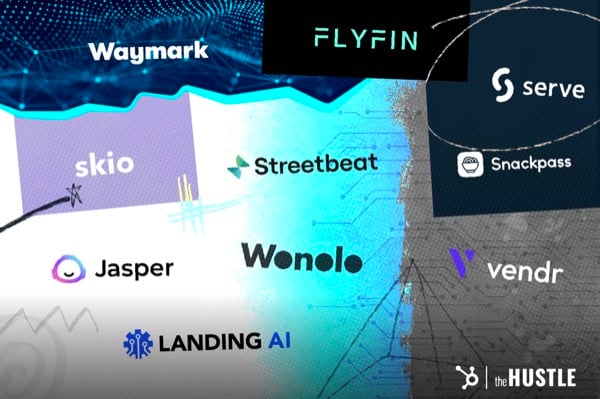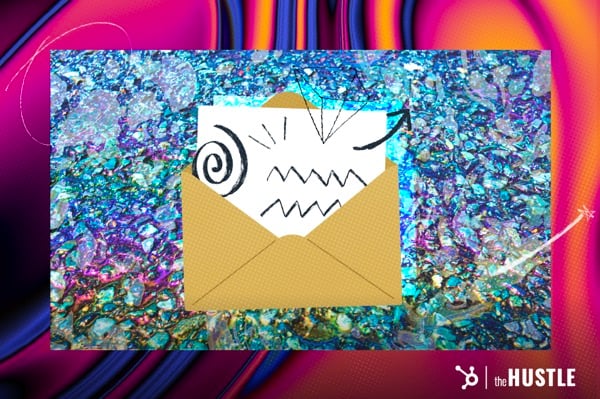Congratulations, it’s a… bill?

Today’s parents are buying more than diapers and bottles for their bundles of joy: Social media has introduced new pressures around everything from baby names and nurseries to strollers and gender reveal parties.
And the trends are pricey. In 2021, 3.65m babies were born in the US, and the global baby products market was valued at $214B.
For expecting parents, the spending often starts long before a baby arrives. Gender reveal parties and baby showers are opportunities for parents to party and post on social media.
Online marketplaces like Etsy sell a seemingly endless array of blue and pink invitations, streamers, and balloons, as well as golf balls and poppers filled with colored powder for an explosive reveal.
Gorgeous by Design, an events company based in Atlanta, offers full-service baby shower planning plus design, decor, and styling services for a total of $7.6k for 50 guests.
Many event planners who handle weddings and corporate gatherings have added baby shower services to their roster for parents looking for a professionally produced party.
With celebrities constantly leveling up their baby-related celebrations, the pressure is on for parents who want to throw A-list celebrations.
Just as party planners were once reserved for high-end weddings, interior designers used to be hired only by those with disposable budgets and cavernous mansions.
Today, more are turning to the professionals to decorate their nurseries and achieve aesthetics worthy of social media likes.
“Before social media, having a professionally designed nursery was only for a certain class of people who were willing to spend a ton of money on the space. Everyone else went to Pottery Barn or Babies R Us,” says Naomi Alon Coe, founder of Little Crown Interiors.
Alon Coe, whose business serves Southern California families and offers both in-person design services and virtual design services to clients around the country, has noticed the many ways social media has changed the design industry.
Most of her clients come in with nursery inspiration photos pulled from Pinterest and Instagram, and about half of her clients find her business on social media.
Alon Coe says that average virtual design clients spend around $5k-$10k, while full design clients spend on average $15-$20k. Though there’s always a range: Last year the company wrapped a project for a client who spent $80k on decorating their baby’s nursery.
The items most likely to put a dent in a parent’s bank account: wallpaper (which she says has grown increasingly popular), furniture, and window treatments.
Today’s parents, driven by the desire to post picture-perfect Instagram Stories, often forget what a nursery is actually about.
“People are usually concerned with aesthetics first,” says Alon Coe, who encourages clients to prioritize function and safety when it comes to nurseries.
It wouldn’t be a 2023 baby nursery without a neon sign of your baby’s name hanging atop custom wallpaper, so parents are willing to sink money into the naming process itself to make sure it has the perfect ring to it.
On TikTok, baby name consultants have sprung up, charging future parents in return for delivering the perfect baby name ideas for their unborn children.
Colleen Slagen (@NamingBebe on TikTok) offers naming packages ranging from 10 names for $250 to 30 names for $400. Slagen currently has a six-week wait time for consultations.
The baby name site Nameberry offers its own consulting services as well, charging $350 for an hourlong meeting and a whopping $10k for nine months of on-call name advice and unlimited meetings.
The hashtag #babyshower has 9.4B views on TikTok, and #genderrevealparty has 7.2B. Pinterest and Instagram are flooded with nursery decor inspo, and products promising to make parents’ lives easier abound.
In a sea of endless photographs of smiling babies, magazine-worthy nurseries, and picture-perfect parties, it’s no wonder parents are moved to cough up cash in the name of a perfect baby.
“Seeing those images all the time and having the societal pressure makes a difference on all of us, whether we know it or not,” says Alon Coe. “I don’t see how it couldn’t.”













 (1)-3.jpg)